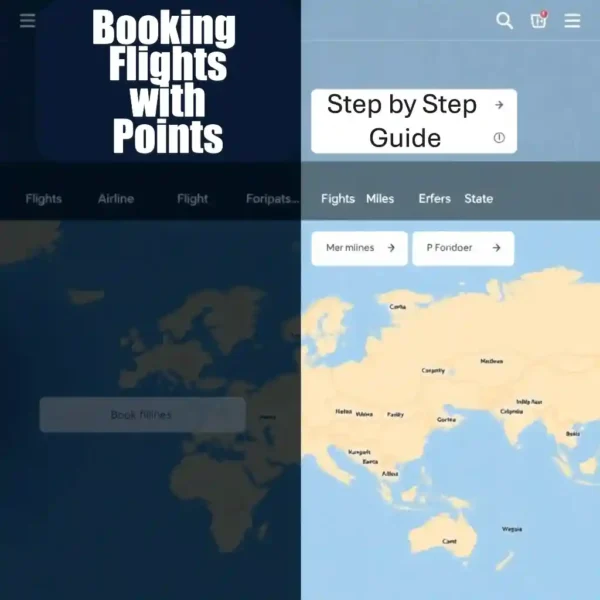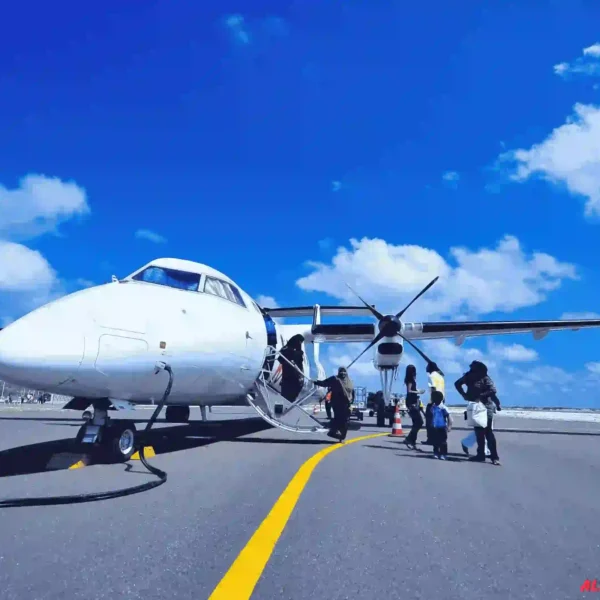For many Pakistani students, the dream of studying abroad feels out of reach because of high tuition fees and living costs. But what if I told you that there are countries where you can get a world-class education without breaking the bank? Fortunately, there are countries that offer high-quality education at a fraction of the cost compared to more expensive study destinations like the US or UK.
In this guide, I’ll show you the best budget-friendly countries for Pakistani students to study in 2025. These destinations offer low tuition fees, affordable living expenses, and easier visa processes. Whether you’re looking for an adventure or a chance to grow academically, these countries provide amazing educational opportunities without draining your savings.
Get ready to explore affordable study options that can help you achieve your education goals and make studying abroad a reality. Plus, I’ll share tips on scholarships and ways to save money while studying!
Why Studying Abroad is a Smart Choice for Pakistani Students
Why Should You Consider Studying Abroad? Studying abroad offers much more than just an education. It’s an opportunity to grow personally, professionally, and culturally. For Pakistani students, this journey can be life-changing in many positive ways.
1. Expand Your Career Opportunities
Studying abroad opens up a wider range of career opportunities. Employers around the world value international experience. By studying in a foreign country, you’ll learn new skills, adapt to different environments, and build connections that could help you land a job anywhere in the world.
2. Experience Different Cultures
Living in another country allows you to experience its culture firsthand. You’ll meet people from different backgrounds, learn a new language, and immerse yourself in new traditions. This cultural exposure broadens your worldview and helps you become more open-minded and adaptable.
3. Improve Your Education
Many universities abroad offer high-quality education and advanced programs that may not be available in Pakistan. By studying abroad, you’ll have access to better resources, cutting-edge research, and experienced professors. Plus, you’ll gain practical knowledge that can give you an edge in the job market.
4. Make New Friends and Build a Global Network
Studying in a different country means meeting students from all over the world. This global network can be beneficial both during and after your studies. These friendships and connections can lead to job opportunities, partnerships, and collaborations in the future.
5. Personal Growth
Living in a new environment teaches you how to be independent, solve problems, and manage your time. It’s a journey of self-discovery where you’ll become more confident, responsible, and resilient. These personal growth experiences will stay with you for the rest of your life.
Studying abroad might seem like a big step, but it’s one that can provide immense rewards for your future. If you’re wondering where to start, check out our guide on finding affordable study destinations for Pakistani students.
Factors to Consider When Choosing Budget-Friendly Countries
How to Choose the Right Country for Your Study Abroad Journey
When it comes to studying abroad, cost is an important factor, but it’s not the only one. You’ll need to consider several factors to make sure your choice fits both your budget and your goals. Here’s what you should keep in mind when selecting a budget-friendly destination:
1. Tuition Fees: Look for Low-Cost Education
Tuition fees are one of the biggest expenses for students studying abroad. While some countries charge high fees, there are others that offer affordable education. Countries like Germany, Poland, and Malaysia have universities that charge low or even no tuition fees, especially for international students. These options make studying abroad much more accessible.
2. Cost of Living: Consider Your Daily Expenses
The cost of living varies from country to country and even within cities. Countries with lower living costs help you stretch your budget further. You’ll need to think about how much you’ll spend on accommodation, food, transportation, and leisure. For example, while living in major cities like London or New York can be expensive, places like Istanbul, Budapest, and Kuala Lumpur offer more affordable options for students.
3. Scholarships and Financial Aid: Get Help Paying for Your Education
Many countries offer scholarships, grants, and financial aid programs for international students. These opportunities can significantly reduce your costs. Countries like Turkey, Germany, and Poland have numerous scholarships for Pakistani students. Make sure to check out scholarship options and apply early to maximize your chances of securing financial support.
4. Visa Requirements and Process: Make Sure It’s Simple
The visa process can be complicated and expensive in some countries. Look for countries with straightforward visa requirements and low visa application fees. Some countries even offer fast-track visa processes for students. For example, studying in Turkey and Malaysia tends to involve less paperwork and quicker processing times compared to other popular study destinations.
5. Quality of Education: Don’t Compromise on Learning
While staying within your budget is important, don’t forget to check the quality of education. Ensure that the universities in your chosen country are recognized internationally and offer the courses you want to study. Research university rankings, read student reviews, and ask for recommendations from other students who have studied in those countries.
6. Post-Graduation Work Opportunities: A Path to Stay and Work
If you’re planning to work after your studies, it’s important to look at post-graduation work opportunities. Some countries offer work permits for international students after they graduate. This can help you gain experience and cover some of your living expenses. Countries like Canada, Germany, and Australia provide options for students to stay and work after completing their studies.
By considering all these factors, you can make an informed decision that not only fits your budget but also aligns with your career and personal goals.
For more detailed information on budget-friendly study destinations, check out our guide on affordable study options.
Top 5 Budget-Friendly Countries for Pakistani Students
Affordable Study Destinations for Pakistani Students in 2025
Now that you know what factors to consider, let’s take a look at some of the best budget-friendly countries where you can study without spending a fortune. These countries not only offer affordable tuition and living costs but also provide great educational opportunities. Here are the top 5 budget-friendly countries for Pakistani students in 2025:
1. Germany: World-Class Education with Low or No Tuition Fees
Germany is famous for its high-quality education, and the best part is that many public universities offer tuition-free or very low-cost education for international students. While living expenses in cities like Munich can be higher, cities like Berlin and Leipzig offer more affordable options. Plus, the country is home to numerous scholarships, including the DAAD Scholarship for Pakistani students, which can help reduce costs further.
Why choose Germany?
- No tuition fees at many public universities.
- Affordable living costs, especially in smaller cities.
- Opportunities for post-graduation work in various fields.
- Extensive scholarship options like the DAAD program.
Check out our guide to studying in Germany for more details.
2. Turkey: A Blend of Culture, Affordability, and Quality Education
Turkey is becoming an increasingly popular choice for international students, especially due to its affordable living and tuition costs. With modern universities and a rich cultural heritage, Turkey offers an excellent environment for Pakistani students to thrive. Universities like Istanbul University and Middle East Technical University offer high-quality programs at reasonable fees. Plus, Turkey offers various scholarship programs for international students.
Why choose Turkey?
- Low tuition fees for both undergraduate and graduate programs.
- Affordable accommodation and food prices.
- Diverse student population and vibrant cultural scene.
- Easy visa process for Pakistani students.
Find more information about studying in Turkey in our Turkey student visa guide.
3. Malaysia: A Student-Friendly Destination in Southeast Asia
Malaysia is one of the most cost-effective study destinations in Asia. With universities that are ranked among the best in the world, Malaysia offers a quality education at a fraction of the cost of Western countries. The cost of living is also affordable, making it easier for students to manage their budgets. Institutions like the University of Malaya and Monash University Malaysia offer a wide range of programs.
Why choose Malaysia?
- Affordable tuition fees and living costs.
- High-quality education with international recognition.
- English is widely spoken, making communication easier.
- Many scholarships and financial aid options for international students.
Explore more about studying in Malaysia in our study abroad tips for Malaysia.
4. Poland: Affordable European Education with Great Opportunities
Poland offers some of the lowest tuition fees in Europe, while still providing a world-class education. Cities like Warsaw, Kraków, and Wrocław are home to renowned universities that attract students from all over the world. The living costs in Poland are much lower than in many Western European countries, making it an excellent option for Pakistani students looking to study in Europe.
Why choose Poland?
- Low tuition fees, especially for European Union students.
- Affordable living expenses compared to other European countries.
- High standard of education in various fields.
- Growing job market for international graduates.
Want to learn more about studying in Poland? Check out our budget-friendly study options in Europe.
5. China: Affordable Education with Wide Range of Programs
China is a top destination for international students, offering quality education at an affordable price. Universities like Tsinghua University and Peking University provide excellent programs in various fields, including technology, medicine, and business. In addition to low tuition fees, China offers many scholarships for international students, and the cost of living is relatively low compared to other countries.
Why choose China?
- Affordable tuition fees and living costs.
- Rich cultural experiences and growing educational reputation.
- Numerous scholarships for international students.
- Opportunities to learn Mandarin, a valuable skill in the global job market.
Find out more about studying in China with our guide to studying in China.
These countries offer a balance of affordability and quality, making them ideal choices for Pakistani students. Choosing any of these countries means access to great education, cultural experiences, and opportunities for personal growth—all without the financial burden of more expensive countries. Discover more affordable study options with our guide on studying in Europe on a budget.
Tuition Fees and Living Expenses Comparison
How Much Will Studying Abroad Cost?
One of the main factors that influence where you choose to study is the cost. While each country offers different advantages, it’s important to compare the overall cost of studying abroad, including tuition fees and living expenses. Below is a simple breakdown of costs for Pakistani students in some of the most budget-friendly study destinations.
1. Germany
- Tuition Fees: Many public universities offer tuition-free education for international students. However, there are some small semester fees (around €250-€350 per semester).
- Living Costs: The cost of living in Germany varies depending on the city, but on average, students can expect to spend around €700-€1,000 per month. Smaller cities are more affordable, while cities like Munich or Hamburg are more expensive.
- Total Estimated Cost per Year: €8,400 – €12,000
2. Turkey
- Tuition Fees: Public universities in Turkey offer affordable education, with fees ranging from $200 to $1,500 per year, depending on the program and university.
- Living Costs: Living expenses in Turkey are relatively low. Students can expect to spend around 1,500 to 3,000 Turkish Lira per month (approximately $80 to $150).
- Total Estimated Cost per Year: $2,500 – $5,000
3. Malaysia
- Tuition Fees: Tuition fees in Malaysia are very affordable, typically ranging from $3,000 to $8,000 per year, depending on the program and university.
- Living Costs: Malaysia offers low living costs, with students typically spending between RM 1,000 to RM 1,500 per month (roughly $240 to $360).
- Total Estimated Cost per Year: $4,000 – $10,000
4. Poland
- Tuition Fees: Tuition fees for international students in Poland range from $2,000 to $5,000 per year, depending on the university and course.
- Living Costs: The cost of living in Poland is affordable, with students spending between 1,500 to 2,500 PLN per month (around $400 to $600).
- Total Estimated Cost per Year: $4,400 – $9,000
5. China
- Tuition Fees: Tuition fees in China range from $2,500 to $5,000 per year, depending on the university and program.
- Living Costs: Living costs in China are relatively low, with students spending between ¥2,000 to ¥3,000 per month (roughly $300 to $450).
- Total Estimated Cost per Year: $3,000 – $7,000
Summary of Estimated Costs:
| Country | Tuition Fees (per year) | Living Costs (per year) | Total Estimated Cost (per year) |
|---|---|---|---|
| Germany | €250 – €350 (public) | €8,400 – €12,000 | €8,400 – €12,000 |
| Turkey | $200 – $1,500 | $2,500 – $5,000 | $2,500 – $5,000 |
| Malaysia | $3,000 – $8,000 | $4,000 – $10,000 | $4,000 – $10,000 |
| Poland | $2,000 – $5,000 | $4,400 – $9,000 | $4,400 – $9,000 |
| China | $2,500 – $5,000 | $3,000 – $7,000 | $3,000 – $7,000 |
As you can see, countries like Turkey and China offer the most affordable options in terms of both tuition fees and living expenses, making them great choices for Pakistani students looking to study abroad on a budget. For a deeper dive into specific scholarships available in these countries, check out our scholarships guide for international students.
If you are interested to dive in more Budget-Friendly countries for Pakistani students, Explore more Cheap countries to study for Pakistani students.
Tips to Save Money While Studying Abroad
Smart Ways to Cut Costs During Your Study Abroad Journey
Studying abroad doesn’t have to be expensive if you know how to manage your money wisely. Here are some practical tips to help you save while studying abroad:
1. Apply for Scholarships and Financial Aid
Many countries and universities offer scholarships for international students. These can cover part or all of your tuition fees and even help with living expenses. Countries like Germany, Turkey, and Poland have numerous scholarship programs specifically for Pakistani students. Be sure to check scholarship opportunities and apply early to increase your chances of winning.
Tip: Keep an eye on scholarship deadlines and make sure to submit all required documents on time. You can also check out scholarship portals like Scholarships.com or DAAD for more options.
2. Choose Affordable Accommodation
Accommodation is one of the biggest expenses for students studying abroad. Look for affordable housing options such as university dormitories, shared apartments, or homestays. These options are often much cheaper than renting a private apartment. Additionally, some universities offer discounted housing for international students.
Tip: If you’re in a city with high living costs, consider living in a shared apartment outside the city center. It can be a more affordable option while still being close to your university.
3. Use Public Transportation
Instead of spending money on taxis or private cars, use public transportation. Most cities offer discounted student passes for buses, trains, and subways. It’s a great way to save money on daily travel and explore the city without breaking your budget.
Tip: In cities with bike-sharing systems, consider using a bicycle to get around. It’s often a cheaper and healthier option.
4. Cook Your Own Meals
Eating out every day can add up quickly. Instead of dining at restaurants or cafes, try cooking your own meals. Buying groceries and cooking at home is not only cheaper but also gives you the chance to experiment with different cuisines. Many international students also share cooking duties in a group, further lowering the cost of meals.
Tip: Plan your meals and shop in bulk for essentials like rice, pasta, and vegetables. This can help you save money in the long run.
5. Shop Smart
When it comes to shopping, look for discounts and sales. Many stores offer student discounts, so always carry your student ID. If you’re shopping for clothes, electronics, or even books, make sure to compare prices before making a purchase.
Tip: Consider buying second-hand items or shopping in local markets for better deals.
6. Get a Part-Time Job
Many countries allow international students to work part-time while studying. Working even a few hours a week can help cover some of your living expenses. Be sure to check the specific rules and regulations for part-time work in your chosen country.
Tip: Jobs like tutoring, working in a café, or doing freelance work can be flexible enough to fit around your study schedule.
7. Take Advantage of Student Discounts
Many restaurants, shops, museums, and transportation services offer student discounts. Make sure to ask for discounts wherever you go, and don’t forget to download student discount apps. These small savings can add up quickly!
Tip: Always carry your student ID with you, as it’s often required to access these discounts.
By following these simple tips in budget-friendly countries for Pakistani Students, they can stretch their budget and make study abroad experience more affordable. Saving money during your studies will help you focus on your education and enjoy your time abroad without financial stress.
Want to know more about affordable student life abroad? Check out our budget-friendly travel tips.
How to Apply for a Student Visa
Step-by-Step Guide to Securing Your Student Visa for Studying Abroad
Once you’ve chosen your destination and university, the next big step is applying for your student visa. A student visa is crucial for studying abroad, and the process can vary from country to country. Here’s a simple guide to help you navigate the student visa application process and make it as stress-free as possible:
1. Choose Your Study Destination and Program
Before applying for a student visa, you must first be accepted by a university or educational institution. This acceptance letter will be required during your visa application process. Make sure to choose a course or program that matches your goals and meets the visa requirements of your chosen country.
Tip: Double-check that your course is eligible for a student visa in your destination country. Some countries only allow student visas for specific courses.
2. Gather Required Documents
Different countries may require different documents, but here’s a list of the most common documents you’ll need to apply for a student visa:
- Acceptance letter from your university or college.
- Valid passport (with at least 6 months of validity left).
- Proof of financial resources (bank statements, scholarship letters, etc.) to show you can support yourself while studying.
- Health insurance or proof of coverage in your study country.
- Visa application form (this can usually be downloaded from the embassy website).
- Passport-sized photos (specific requirements for size may vary).
Tip: It’s important to have clear, legible copies of all your documents. Double-check the embassy’s website for any specific requirements.
3. Pay the Visa Fees
Many countries require a visa application fee. The fee can vary, so be sure to check with your destination country’s embassy for the exact amount. Some countries may also ask for additional fees for processing your visa.
Tip: Keep your payment receipt and any other documents safe, as you might need them during the application process or interview.
4. Schedule and Attend an Interview
For many countries, an interview is required as part of the student visa process. The embassy will ask you questions about your plans, why you chose your destination, and how you plan to support yourself during your studies. It’s important to be honest and clear with your answers.
Tip: Prepare by practicing answers to common questions about your study plans and future goals. Be sure to show your enthusiasm for studying abroad.
5. Wait for Your Visa Approval
Once you’ve completed the application process, you’ll need to wait for your visa to be processed. Processing times can vary from a few weeks to a few months, depending on the country. Be patient and avoid making travel arrangements until your visa is confirmed.
Tip: Apply for your student visa as early as possible to avoid last-minute stress. You can often track the status of your visa online.
6. Prepare for Arrival
Once your student visa is approved, it’s time to prepare for your journey! Make sure you have all the necessary documents in hand when you travel, including your visa, passport, acceptance letter, and financial proof. Also, review any additional entry requirements like COVID-19 testing or quarantine.
Tip: Check with your university to see if they offer any orientation programs for international students, as this can help you settle in faster.
Budget-Friendly Countries for Pakistani Students required these steps to process student visa. Ensure all your documents are in order, easily navigate the student visa process and get one step closer to your study abroad adventure. A student visa is your gateway to an exciting academic and cultural experience abroad.
Looking for more information about student visas? Check out our complete guide to student visas for detailed country-specific tips and requirements.
Benefits of Studying Abroad for Pakistani Students
Why Studying Abroad is a Life-Changing Experience for Pakistani Students?
Studying abroad is more than just an academic pursuit; it’s an opportunity to grow, explore, and experience life from a global perspective. For Pakistani students, studying in a foreign country opens up doors to new educational opportunities, career prospects, and personal development. Here’s a recap of why studying abroad is an excellent decision:
1. Access to World-Class Education
Studying abroad gives you the chance to receive a high-quality education that might not be available in your home country. Many universities in budget-friendly countries like Germany, Turkey, and Malaysia offer top-tier programs, often with opportunities for hands-on experience and global research projects. By gaining an international education, you can increase your chances of securing a high-paying job after graduation.
Tip: Consider studying in fields that are in demand globally, such as technology, business, and healthcare, to increase your future career opportunities.
2. Cultural Exposure and Personal Growth
Living and studying in a foreign country helps you develop a broader worldview. You’ll experience different cultures, meet people from all walks of life, and gain invaluable insights into global issues. This exposure to diverse ideas and ways of life will make you more adaptable, open-minded, and globally aware—qualities that are highly valued by employers worldwide.
Tip: Take time to learn the local language and customs. It will enrich your experience and help you connect with others more easily.
3. Building an International Network
Studying abroad allows you to build connections with people from different backgrounds, creating a global network of friends, professors, and colleagues. These connections can be valuable when it comes to future job prospects, business collaborations, or even travel opportunities. Networking with fellow students and professionals in your field of study can open doors that you may never have imagined.
Tip: Join student organizations, attend international conferences, and actively engage with your peers and professors to expand your network.
4. Enhanced Career Prospects
Employers around the world highly value the skills and experiences gained through studying abroad. It shows that you are proactive, independent, and capable of adapting to new challenges. Additionally, many countries offer post-graduation work opportunities, allowing you to gain work experience in your field. This international experience can make you stand out in the global job market.
Tip: Look into internship and work opportunities in your study destination before and after graduation to enhance your career prospects.
5. Affordable Education Options
As we’ve seen in earlier sections, there are several affordable study destinations for Pakistani students, such as Turkey, Poland, and Malaysia. With low tuition fees and living costs, these countries offer a chance to receive a high-quality education without the financial burden of more expensive destinations. Additionally, many universities offer scholarships and financial aid to international students, making it easier to manage costs.
Tip: Research scholarship programs and cost-saving tips to ensure you make the most of your study abroad experience.
Final Thoughts of budget-friendly countries for Pakistanis
Studying abroad is an investment in your future. It’s a chance to receive a world-class education, immerse yourself in a new culture, and develop skills that will set you apart in the global job market. With many budget-friendly countries offering quality education options, Pakistani students can make their study abroad dreams a reality without breaking the bank. By carefully choosing your destination and planning your budget, you can ensure that studying abroad will be an enriching, rewarding experience.
Want more tips and advice on studying abroad? Be sure to check out our ultimate study abroad guide for everything you need to know.






